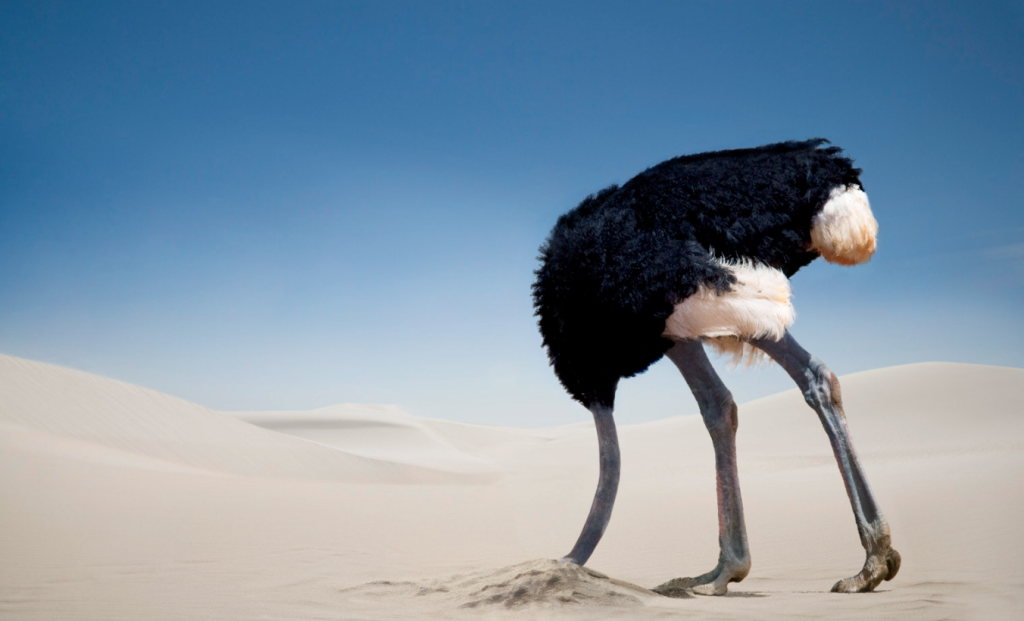

Choose what you know wisely
Ignorance: A Global History by Peter Burke. Yale University Press, 2023. 256 pp., $30.00
What is ignorance, and what is its role in history? The cultural historian Peter Burke, author of such books as The Italian Renaissance: Culture and Society in Italy and the two-volume A Social History of Knowledge (vol. I and vol. II), has a new book that poses these questions in an exploratory spirit, knowing that they have no final answer. Citing Flaubert’s “wish to write a book about nothing, un livre sur rien, ‘a book dependent on nothing external . . . a book which would have almost no subject, or at least in which the subject would be almost invisible,” Burke identifies the methodological problem of his study in his very first paragraph.
One could write about the idea of ignorance in post-Socratic Greek thought or on Clausewitz’s appreciation of the role of ignorance in war. Much has been written on the ignorance of Europeans about the peoples and places they conquered. But write about ignorance itself? Un livre sur rien? When posed at the highest degree of abstraction, ignorance seems like a topic for philosophers, not historians. It can have no general history, only specific ones. Historians cannot write about ignorance as pure form. And yet this “almost invisible” subject runs through every historian’s work. Burke’s topic touches us all.
Knowing the importance of his subject and the impossibility of writing a history of ignorance as pure form, Burke wastes little time theorizing about ignorance at the outset of his book. He organizes Ignorance into two sections. The first deals with specialized fields such as philosophy, geography, or the natural sciences. The second turns to the consequences of ignorance throughout history—mostly European, as he acknowledges, but passably “global” as per the title.
In the course of Burke’s survey we encounter Kant’s motto “Dare to know” (sapere aude) but also the eighteenth-century botanist Bernardin Saint-Pierre’s praise of ignorance on the grounds that it “stimulated the imagination.” We encounter the philosopher John Rawls’ “veil of ignorance,” a thought experiment intended to allow one to make determinations of social and political justice without knowledge of one’s own circumstances in the social and political order. We learn that Henry Ford remarked “I am looking for a lot of people who have an infinite capacity to not know what can’t be done,” anticipating Silicon Valley venture capitalists’ enthusiasm for very young company founders because such persons don’t have the experience to know what they can’t accomplish—as if a lack of knowledge of limitations were a lack of limitations.
But if some praise ignorance, they seem like outliers, self-consciously finding a virtue in what is usually a vice. One strength of Burke’s first section is that he attends closely to women’s past exclusion from scholarly professions. That exclusion had led—until shamefully recently—to considerable ignorance of women’s social and cultural contributions throughout the past, something partly remedied through the influence of feminist historians.
Burke’s second section is a catalog of disastrous forms of ignorance organized by types of human activity: ignorance in war, ignorance in business, ignorance in politics, and then the strategic ignorance involved in espionage and conspiracy. Just a few examples, out of scores, include the role of the aggressive plowing of grasslands, heedless of the consequences, in producing the American “Dust Bowl” of the 1930s; American ignorance of the language, geography, and political conditions of Vietnam during the Vietnam war; and perhaps most pernicious, the partially willful ignorance of business leaders and politicians in refusing to acknowledge and confront climate change.
Burke is a masterful guide to military and political disaster, and can make enjoyable reading out of many debacles that must not have been fun to live through. Indeed, Ignorance rewards the reader with cases from the history of philosophy, literature, science—nearly every area of human activity is here, unified by the issue of unknowing. But despite its title, Burke’s book is ultimately not a history of ignorance itself, in the sense of a concept whose itineraries we can trace. It is rather an account of ignorance as a force in history.
Ignorance is unlike works in intellectual history that track an idea as it travels and develops across time and space. Despite Burke’s reference to following the German tradition of Begriffsgeschichte or “conceptual history,” showing how a network of ideas is connected to a set of social phenomena, Ignorance is not focused on conceptual accounts of ignorance but rather on the effects of ignorance on our lives. As Ignorance moves on, reflection on ignorance as a concept retreats into the background, behind thickets of concrete examples, some of them personally painful to this reviewer—such as the role of unpreparedness, ignorance, and sheer “ignoring” in the badly managed COVID 19 pandemic. The consequences of ignorance are so important that it can be hard to stay focused on the theory.
Yet, Burke notes, ignorance has enjoyed a relatively recent scholarly vogue. In 2008 the historians of science Robert Proctor and Londa Schiebinger published an edited collection called Agnotology, a term devised by the linguist Iain Boal. Proctor and Schiebinger use the term to mean the study of the social production and maintenance of ignorance in an age of ignorance—for, they said in their preface, we live in such an age. Many forms of agnotology derive their force from social criticism, showing that much ignorance results from the operations of power, inequality, and prejudice.
But if some scholars are interested in ignorance, business writers and consultants spill far more ink on the subject. We are all ignorant of the future, after all, and techniques for managing that ignorance—or if you prefer, that uncertainty—can be a goldmine. One of Burke’s most interesting chapters, “Uncertain Futures,” deals with this topic, moving from the insurance industry and the history of risk assessment (with necessary reference to the German sociologist Ulrich Beck and his 1986 Risk Society) to prediction and forecasting by governments and private actors, usually concerning world events and economic developments.
A sober consumer of these practices, Burke remarks “if we read the predictions of futurologists decades after they have been made, the failures spring to our eyes.” Many writers and consultants try to remedy our ignorance of the future not with futurological predictions but instead with the idea of preparedness in the face of uncertainty, and with sensitivity to the future as a form of organizational capacity. Burke, for his part, recommends the study of the past, not out of the belief that the past is a source of precedent on which we can base our own predictions, but on the commonsense grounds that it can keep us from repeating mistakes.
Historians cannot write about ignorance as pure form without some specific context. But something akin to a theoretical account of ignorance arises from neighboring fields that historians all too often overlook: archival work and librarianship. Indeed, librarians and archivists are curiously absent from Burke’s book, and so are their territories—the assessment, preservation and curatorship of knowledge, and the facilitation of access for researchers of all types.
Sometimes while reading Ignorance I felt that Burke had separated ignorance and knowledge from the institutional life of knowledge, which of course is also the institutional life of ignorance. Libraries and archives are the technologies by which we produce knowledge and ignorance both. And I was reminded that those who manage collections—that is, knowledge—are always making decisions about what to keep and what to discard, about what counts as useful knowledge, how long it will be useful to researchers, and about what we can (to maintain Burke’s terms here) afford to become ignorant.
Without a certain amount of judicious discarding, we simply have much more than we can store, preserve, organize, and access, particularly given the volumes of information produced by the digital turn. This means that a certain degree of ignorance, albeit hopefully planned and thoughtful ignorance, is a requirement for those who hope to know things. Dreams of total knowledge are shallow things, or as the film archivist Rick Prelinger has put it, in a 2018 talk at the National Gallery of Art, “universal storage is the greatest machine for forgetting that humans ever could imagine.”
Some contemplation of this problem of necessary ignorance can help us to reshape our sense of what it means to know. Knowing is selective and active, not simply passive. If there can be no general theory of ignorance in history, perhaps there can be in the work of knowledge: Ignoring is part of how we know, given the limits of our time and attention, our ken.
In the introduction to his 1984 collection of early short stories, Slow Learner, Thomas Pynchon wrote, “We are often unaware of the scope and structure of our ignorance. Ignorance is not just a blank space on a person’s mental map. It has contours and coherence, and for all I know rules of operation as well. So as a corollary to writing about what we know, maybe we should add getting familiar with our ignorance.”
Perhaps the “contours and coherence” of ignorance suggest the possibility of agnotology, of studying the social forces that produce our ignorance; Robert Proctor quoted Pynchon’s lines in his contribution to the 2008 Agnotology. But Pynchon seems to have our personal relationship with ignorance in mind. The rules of my ignorance are my rules, reflecting my prejudices and tastes and experiences, even if they are also your rules because of the shared social world we inhabit. I can learn them, and learn to take some responsibility for them.
Reading Burke’s Ignorance, I became conscious of my own specific path as an intellectual historian, the way each book I picked up, each language I studied, involved ignoring something else by necessity. And of course, the more I learn, the more my ignorance extends around me in all directions, which is one of the paradoxes of learning. Once again, the lessons of the archivists and librarians come to my aid, reminding me that my shifting ignorance is a condition of my shifting knowledge. To Kant’s “Dare to know” we might add a corollary: Choose what you know wisely.
Benjamin Aldes Wurgaft is a writer and historian. His books include Thinking in Public: Strauss, Levinas, Arendt (Penn, 2016), Meat Planet: Artificial Flesh and the Future of Food (California, 2019) and the forthcoming Ways of Eating (California, 2023).